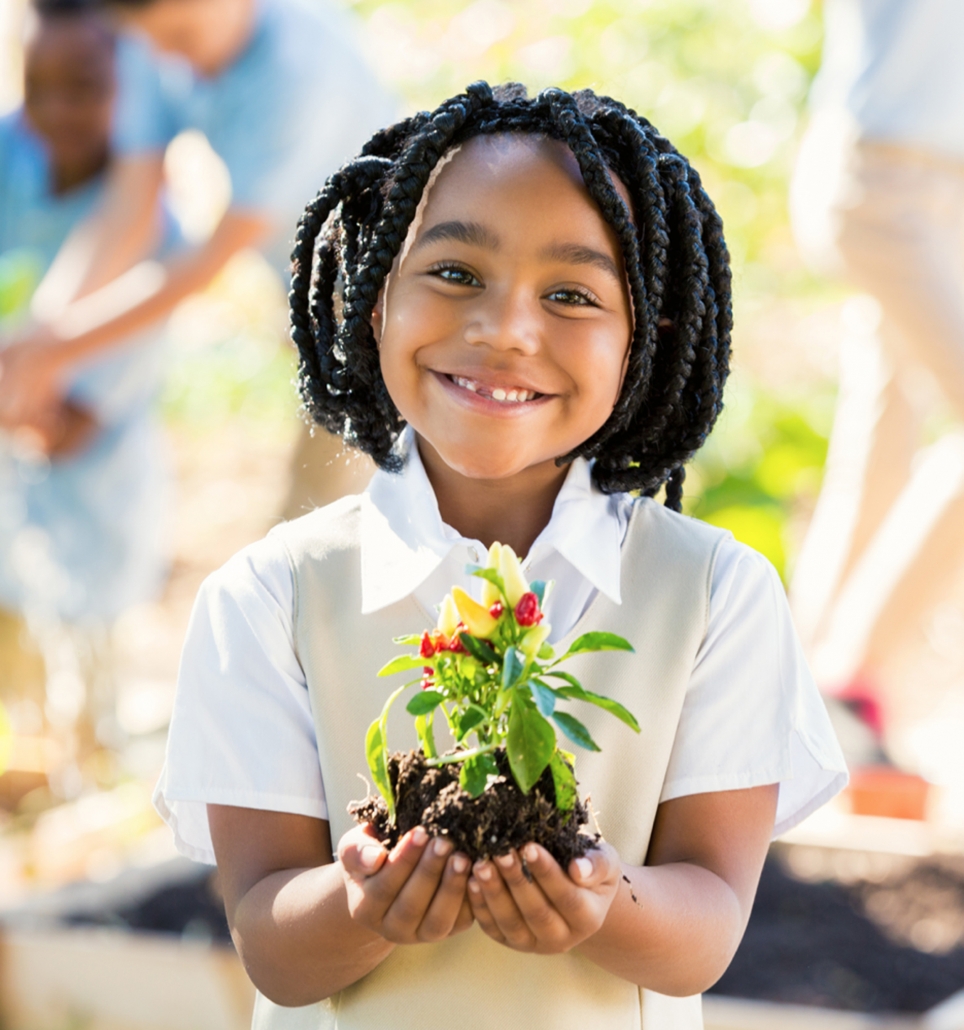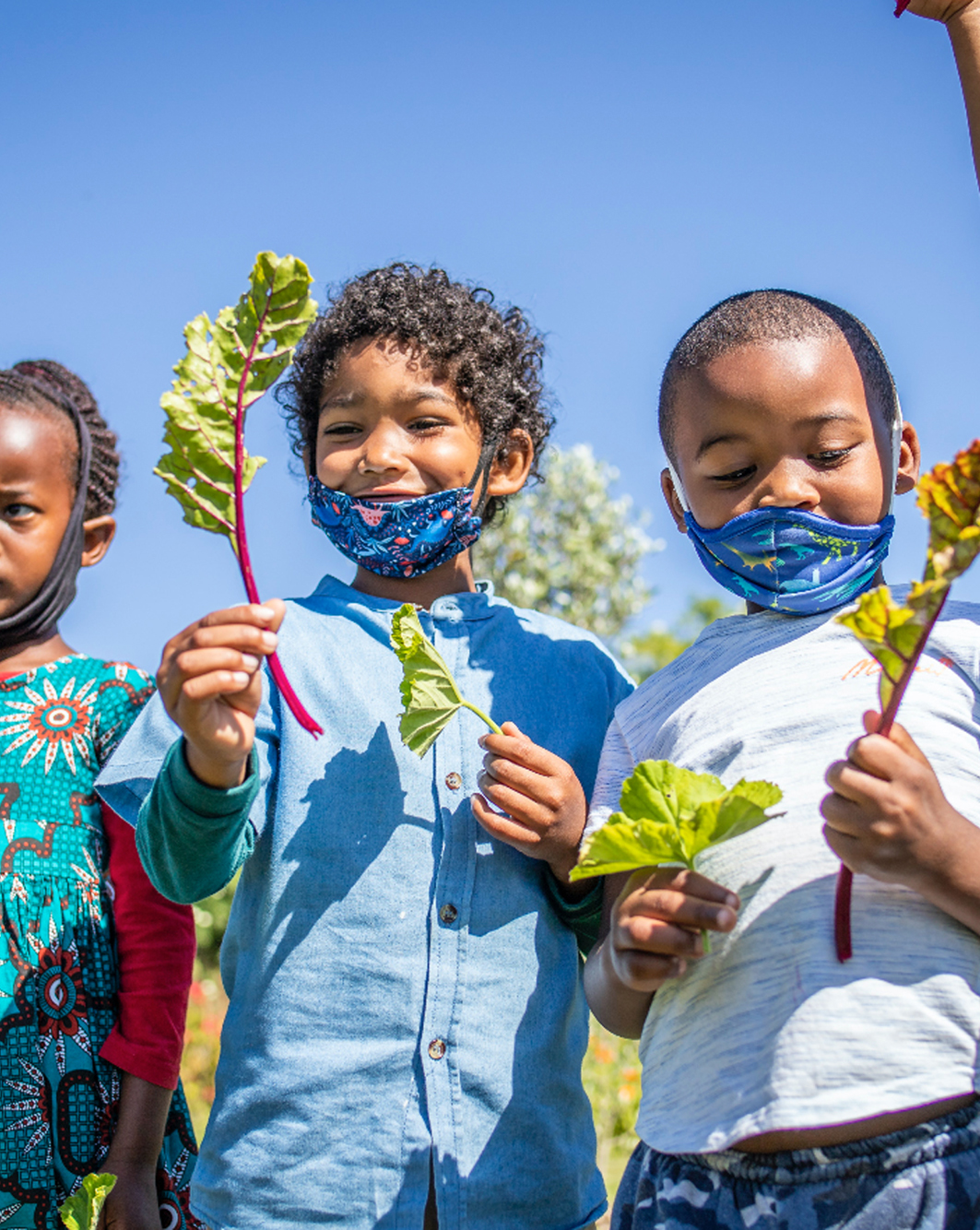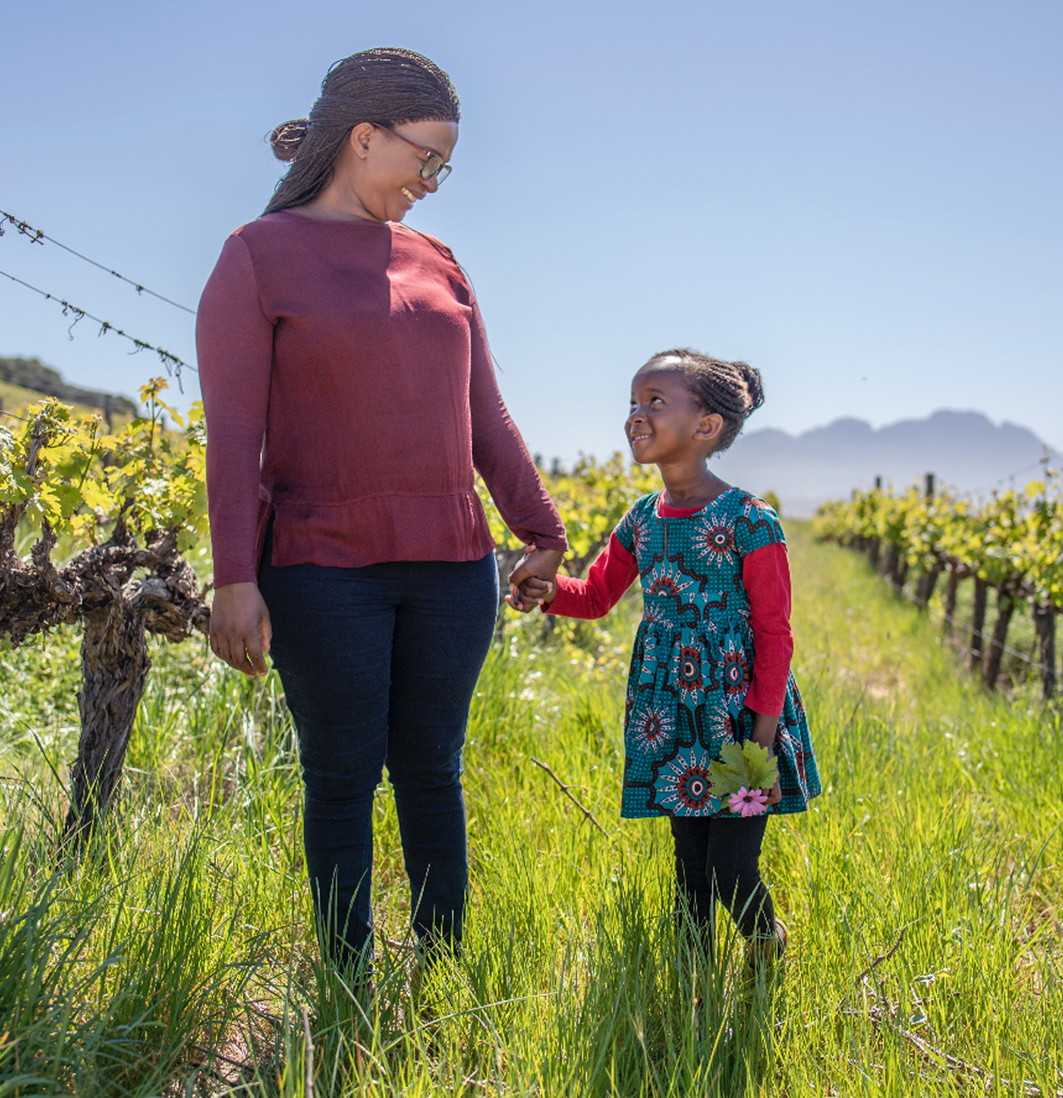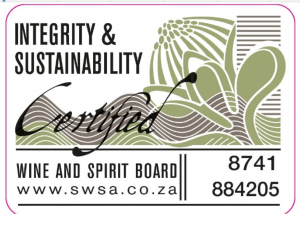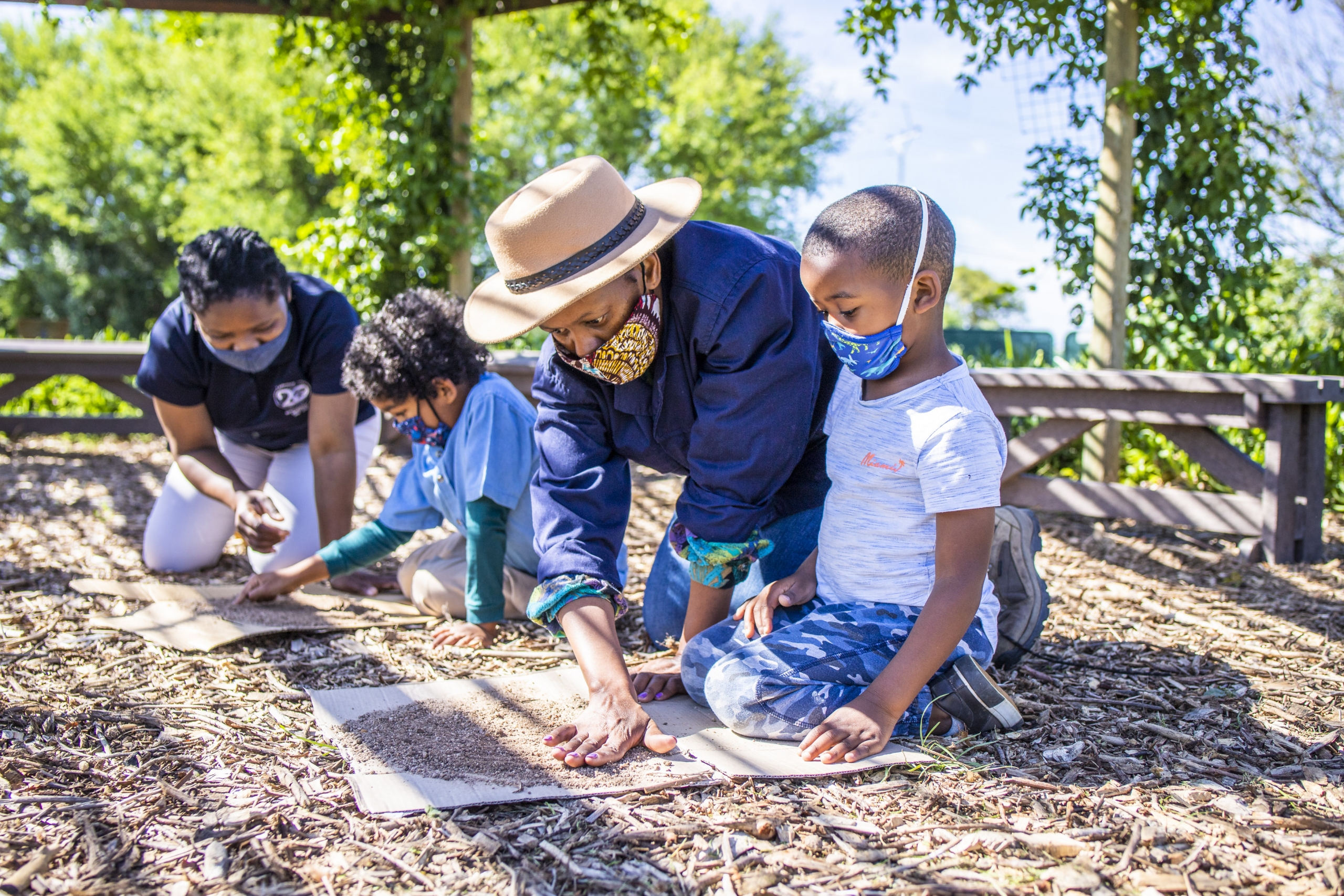LOCAL IMPACT. GLOBAL RELEVANCE
AN INNOVATIVE ECOSYSTEM FOR AFRICA’S CHILDREN
The Indaba Foundation is building a sustainable ecosystem to transform the lives of Africa’s most vulnerable children.
Under-investment in Early Childhood Development (ECD) has been exacerbated by the devastating impact of the global pandemic response, locally and globally.
The Indaba Foundation’s ECD Investment Programme comprises:
- Transformative Teacher Training:
Staffing ECD Centres with international-quality teachers across the Cape Winelands – the wine-producing region riven by legacies of apartheid, colonialism, gender-based violence and race-based inequality; - World-Class ECD Centres:
Benefitting a generation of children in their earliest years of life, across the region; - Women’s Economic Empowerment:
Our trained women will establish and lead entrepreneurial micro-businesses – their newly-equipped ECD centres; - Groundbreaking Agri-Social Partnerships:
A “Social Investment Seal” pact, between the wine industry and vulnerable communities across the region.

LOCAL IMPACT. GLOBAL RELEVANCE
THE CRISIS WE FACE
The majority of children in South Africa
are at risk of not reaching their full potential as a direct result of poverty,
lack of adequate nutrition and health. South Africa is staring down the barrel
at crippling socio-economic realities.
Challenges we must overcome include:
- “South Africa is the world’s most unequal country”
– World Bank, 2019 - “Stellenbosch has one of the highest GINI coefficients in the world”
– World Bank, 2019 - “The Western Cape has the world’s highest rate of Foetal Alcohol Syndrome (“FAS”),
estimated to be between 196 and 276 children per 1,000”
– University of Cape Town, 2019 - “South Africa has the highest rate of reported rape in the world.”
– Western Cape provincial government 2019 - “South Africa has one of the world’s worst education systems”
– The Economist, 2020

LOCAL IMPACT. GLOBAL RELEVANCE
HOW WILL IMPACT
BE ACHIEVED?
The Indaba model focuses on three pioneering interventions to deliver impact – each supporting a pillar of transformation:
- Investment in Teacher Training:
The Indaba Institute will initially train at least 1 000 (mostly women) ECD-teachers
who will in turn enhance the educational outcomes of more than 30 000 children
across the Cape Winelands of South Africa by 2025.This will include:
• Transformative AMI-Accredited, ESF-standard ECD teacher training;• Quality and accredited materials and equipment;
• Infrastructure and Learning Environments of impact-driving standards, including
non-toxic materials and compliance with provincial government’s official
standards (Department of Social Development). - Investment in Women’s Economic Empowerment:
Indaba’s Teacher Training empowers grossly underpaid and undervalued women
to expand or establish sustainable micro-businesses.Trained teachers enter pathways that enable further learning opportunities,
provided by the Indaba Institute and educational partners and agencies. - Investment in Agri-Social Partnerships to Sustain Change:
The Indaba Institute is proposing a historic intervention to see the wine industry
of South Africa enter an agriculture-education partnership, to transform the
socio-economic future of a generation across the Cape Winelands of South Africa:A “Social Investment Seal” (SIS) has been presented and is being designed for
adoption by South Africa’s Wine Industry in conjunction with the current
IPW biodiversity seal in existence.This Agriculture-Education partnership will enable the sustained investment
into a social investment model that benefits women, children, producers,
industry and communities.

LOCAL IMPACT. GLOBAL RELEVANCE
INTRODUCING AN AGRI-SOCIAL INVESTMENT: A “SOCIAL INVESTMENT SEAL”
This will secure international standard ECD for the region’s most vulnerable children, through a sustainable partnership with the wine industry.
The “Social Investment Seal (SIS)” is as an opportunity for progressive partners to drive historic change and the socio-economic future of a generation across the Cape Winelands of South Africa. Here, legacies of poverty, gender inequality, gender-based violence, and systemic racial prejudice prevail.
Wine industry partners who carry the “SIS” quality badge will demonstrate a public commitment to social transformation, as a mark of progressive business.
Educateurs Sans Frontieres (ESF) is a programme of the Association Montessori International* (“AMI”).
ESF-quality ECD, in a sustainable partnership with the wine industry, will secure the most rigorous teacher training program (AMI), contextualizing it to Africa’s lowest income contexts, and using it to both create world-class teachers and empowering low income women as entrepreneurs and community leaders.
This promises to transform the region’s social, economic, health and life outcomes.
Standards for ESF-quality ECD include:
• Teacher training at ESF-endorsed international standards;
• Quality international curricula, infused with bespoke local co-ownership and relevance;
• Learning conducted in quality, progressive learning environments;
• Sustainably supported by the requisite learning materials – and social services;
• And meeting formal governmental Department of Social Development (DSD)
ECD centre criteria.
Children deserve and require this set of standards,
to enable them to lead a radically changed future.

LOCAL IMPACT. GLOBAL RELEVANCE
LEADING WITH “WHY”:
THE IMPACT OF THE
INDABA INTERVENTION
In 25 years from now – a transformation: From despair to hope.
• Scalable, high-quality Teacher Training:
Dramatically-improved ECD teaching will have been shown to be possible, at scale,
through the Indaba model.
• Raising ECD standards:
The earliest years of life, of up to 250 000 children, will be immeasurably improved
– lasting their entire life paths. Educational standards will show dramatic improvement
due to the significant ECD investment, transforming the educational capabilities
of children throughout their school careers.
• Transformation in Women’s Economic Empowerment:
A network of international-standard ECD centres across the Cape Winelands will deliver
abundant opportunities for Women’s Economic Empowerment, in hundreds of
micro-communities.
• Breaking from legacies of apartheid and colonialism:
Foetal Alcohol Syndrome levels will be at their lowest in two generations. The South African
wine industry will be seen as a world leader in transformation, sustainably.
Research will prove the rapidly improving social measures and outcomes in the wine
industry footprint as a result of high quality ECD teacher training.
INTRODUCING
“THE UNIVERSITY OF THE CHILD”
Information on Africa’s first “University of The Child” available upon request – an institution dedicated to child-centric research and skills development, to sustain transformative impact in perpetuity.
LATEST NEWS
April 19, 2021
Today, the future of education in the Cape Winelands shone brighter! Day 1 of our CoRE teacher training course in Kayamandi was a great success.
SEE MORE
